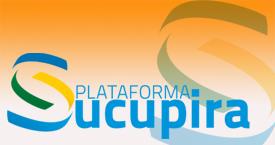Collective bargaining and the period of maternity leave
empirical study in the information technology segment
Abstract
Introduction: The birth of a child, constitutionally guaranteed reproductive right, represents a high opportunity cost and maternal burdens, especially in the early days of life. This situation may lead to different legally protective norms, sectorially negotiated, and government incentives specifically regarding the number of days off. Therefore, maternity leave is the subject of interest in this research, which aims to address the investigation towards a sector that has national and international interfaces, besides representing the paradigm of the current economy, namely information technology.
Objective: This article aims to investigate and describe the (non)convergence between maternity leave regulation, labor law; the Collective Labor Convention 2020/2021 SP012268/2021 and the realization, through the Sustainability Report document, of the right based on the practice of a company with recognized leadership in the Information Technology sector, listed on B3, the Brazilian stock exchange.
Methodology: The study included, in summary, a methodology based on documentary analysis and a classification model to analyze and discuss the implementation of the most favorable labor standard for maternity.
Results: Legal and contractual norms were identified as a result of the research, which presented a period superior to the initially fixed in the Consolidation of Labor Laws. It was possible to identify contemporary public policy associated with tax benefits in order to extend the maternity leave period.
Conclusion: As a research finding, it can be concluded that there is convergence between collective bargaining and the implementation of the most beneficial norm, favoring public policy for maternity protection for workers, specifically exceeding the period determined in legal text.
KEYWORDS: Collective bargaining. Maternity leave. Information technology sector.
Downloads
References
BRASIL. Constituição (1988). Constituição da República Federativa do Brasil. Planalto. Disponível em:
________. Decreto-lei nº 7.052, de 23 de dezembro de 2009. Regulamenta a Lei no 11.770, de 9 de setembro de 2008, que cria o Programa Empresa Cidadã, destinado à prorrogação da licença-maternidade, no tocante a empregadas de pessoas jurídicas. Diário Oficial da União. Disponível em: < http://www.planalto.gov.br/ccivil_03/_ato2007-2010/2009/Decreto/D7052.htm> Acesso em: 21 jan 2023.
________. Decreto-lei nº 10.854, de 10 de novembro de 2021. Brasília. DF. Planalto. Regulamenta disposições relativas à legislação trabalhista e institui o Programa Permanente de Consolidação, Simplificação e Desburocratização de Normas Trabalhistas Infralegais e o Prêmio Nacional Trabalhista, e altera o Decreto nº 9.580, de 22 de novembro de 2018. Diário Oficial da União. Disponível em: < http://www.planalto.gov.br/ccivil_03/_Ato2019-2022/2021/Decreto/D10854.htm#art187> Acesso em: 21 jan 2023.
________. Decreto-lei nº 9.580, de 22 de novembro de 2018. Planalto. Regulamenta a tributação, a fiscalização, a arrecadação e a administração do Imposto sobre a Renda e Proventos de Qualquer Natureza. Diário Oficial da União. Disponível em: http://www.planalto.gov.br/ccivil_03/_Ato2015-2018/2018/Decreto/D9580.htm#art648. Acesso em: 21 jan.2023.
CHANG, E. Brotopia. New York: Portfolio Penguin, 2019.
GIDDENS, A.; SUTTON, P. W. Conceitos essenciais em sociologia. São Paulo: UNESP, 2017.
INSTITUTO BRASILEIRO DE GEOGRAFIA E ESTATÍSTICA (IBGE). Pesquisa Nacional por Amostra de Domicílios Contínua (PNAD Contínua). Disponível em: https://www.ibge.gov.br/estatisticas/sociais/trabalho/9173-pesquisa-nacional-por-amostra-de-domicilios-continua-trimestral.html?edicao=35504&t=destaques. Acesso em: 21 jan.2023.
KUNDE, S.; LOURENÇO, M. L. Motherhood Penalty: uma revisão sistemática da literatura internacional em Administração. Revista Gestão & Planejamento, v. 23, n. 1, p. 414-431, 2022.
LATOUR, B. A fabricação do direito. São Paulo: Unesp, 2019.
LUHMANN, N. O direito da sociedade. São Paulo: Martins Fontes, 2016.
LUNA, C. P.; SILVA, R. O.; BARROS, D. F. COVID-19 como uma questão de gênero no mercado: uma chamada para ação contra a vulnerabilidade?. Cadernos EBAPE.BR, v. 20, n. 3, p. 369-386, 2022.
MORGAN, G. Images of organization. Thousands Oaks, 2007.
MONTEIRO, P. F. H. Q.; LEMOS, A. H. C.; COSTA, A. S. M. As razões do Opt-out: um estudo sobre mulheres que interromperam suas carreiras em função da maternidade. Sociedade, Contabilidade e Gestão, v. 16, n. 2, p. 134-154, 2021.
RECEITA FEDERAL. Programa Empresa Cidadã. Disponível em: https://www.gov.br/receitafederal/pt-br/assuntos/orientacao-tributaria/isencoes/programa-empresa-cidada. Acesso em 21 jan.2023.
SANCHES, S.; GEBRIM, V. L. M. O trabalho da mulher e as negociações coletivas. Estudos avançados, 17 (49), 2003. Disponível em: https://www.scielo.br/j/ea/a/DhkZjsm6RhFmVgB4kW93DJz/?format=pdf&lang=pt. Acesso em 21 jan. 2023.
SALGADO, M. G. Curso de direito do trabalho. 18. ed. São Paulo: LTR, 2019.
SILVA, H. B. Direito do trabalho aplicado. vol. 1. São Paulo: Revista dos Tribunais, 2021.
SINDICATO DAS EMPRESAS DE PROCESSAMENTO DE DADOS E SERVIÇOS DE INFORMÁTICA DO ESTADO DE SÃO PAULO. Quem somos?. Disponível em: http://www.seprosp.org.br/wp-content/uploads/2015/09/Servicos-SEPROSP.pdf. Acesso em 21 jan. 2023.
__________. CNAE 2.0. Disponível em: http://www.seprosp.org.br/?page_id=19 . Acesso em 21 jan. 2023.
SINDICATO DOS TRABALHADORES EM PROCESSAMENTO DE DADOS E TECNOLOGIA DA INFORMAÇÃO DO ESTADO DE SÃO PAULO (SINDPD). Convenção Coletiva de Trabalho MR066611/2021 (CCT1). Disponível em: < https://sindpd.org.br/sindpd/upload/midia/1641235229185.pdf > . Acesso em 21 jan. 2023.
___________. Conheça um dos sindicatos mais atuais no país. Disponível em: https://sindpd.org.br/sindpd/site/interna.jsp?m=1&s=1. Acesso em 21 jan. 2023.
SISTEMA ESTADUAL DE ANÁLISE DE DADOS (SEADE). Entre 2000 e 2020, o número médio de filhos passou de 2,08 filhos por mulher para 1,56. Disponível em: https://www.seade.gov.br/entre-2000-e-2020-o-numero-medio-de-filhos-passou-de-208-filhos-por-mulher-para-156/. Acesso em 15 nov.2023.
SOUZA, S. F. Educação, trabalho e socialização de gênero. Educação & Linguagem, Ano 11, n. 18, pp. 170-185, jul-dez 2008.
TOTVS. Relato Integrado 2021. Disponível em: https://api.mziq.com/mzfilemanager/v2/d/d3be5d49-62e7-4def-a3e1-ab25ff09f153/f96fd61b-246c-5a75-777c-b4571e100883?origin=1 . Acesso em 21 jan. 2023.
VERRECCHIA, R. Essays on Disclosure. Journal of Accounting and Economics, 32, 2001, pp. 97-180.
WISKER, G. The postgraduate research handbook. 2nd ed. London: Palgrave Macmilian, 2008.
Copyright (c) 2024 Antonio Nunes Pereira

This work is licensed under a Creative Commons Attribution 4.0 International License.














